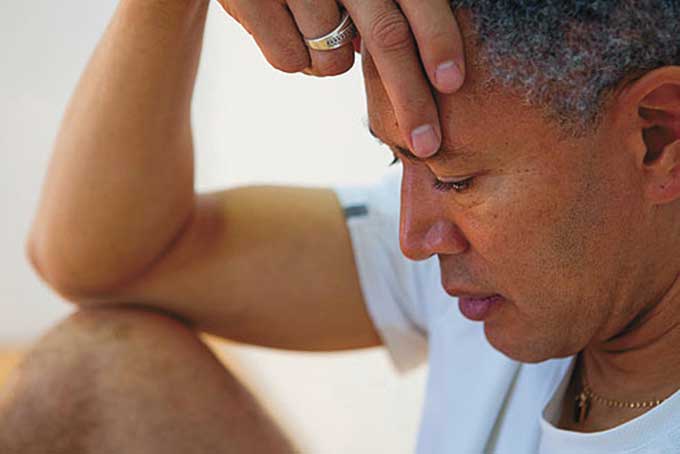“In general, African Americans face barriers to health care and mental health services,” says Dr. Reynolds. “Many feel shame from their communities about having mental illness. Some people just don’t want to be diagnosed as ‘mentally ill.’”
Because African Americans are less likely to seek mental health services, they are also less likely to receive the correct diagnosis or treatment. Dr. Reynolds says that people may define depression in their own way. Their idea of what depression is may not be the same as a mental health provider’s. They also cope differently. In some communities, people prefer to find help solely from their families, religious or from community leaders. Dr. Reynolds has found that family and friends can help bridge the gap between people who need mental health help and those who can provide it. People should not suffer in silence and isolation, Dr. Reynolds says. Finding out there’s a problem and getting help early on is important.
Depression can be prevented and treated. The first step is for people to talk to someone they trust about how they’re feeling. Then, talk to a mental health professional who can recommend behavioral interventions. These can include talk therapy, learning about better problem-solving and coping skills, help with sleep and eating practices, exercise and doing pleasurable activities. For some people, medication may also lessen the effects of depression on their lives.
Dr. Reynolds has worked with a lot of people who have complicated grief. He works with people in communities that experience a lot of violence and violent death, which is an experience that can lead to major, long-lasting depression. In studying grief, he has found that when people who face barriers to mental health seek help, they are treated with just as much success as people who don’t face barriers. Mental health intervention does help.
It’s important to know that anyone experiencing depression doesn’t need to just “tough it out” or expect it to go away on its own. Depression isn’t about people choosing to be in a “bad mood.” It is a dysfunction of the brain that can happen to anyone. Getting help is important for physical health, too. Many people know that keeping their heart healthy is important. Keeping their brain healthy is, too.
“Over time, depression can be toxic to the brain,” says Dr. Reynolds. “It can cause the brain to not work as well. People start having problems thinking and with their memories, among other things. Getting treated for depression can only better brain health.”
It’s time to take Mental Health seriously

From the Web
- Advertisement -
